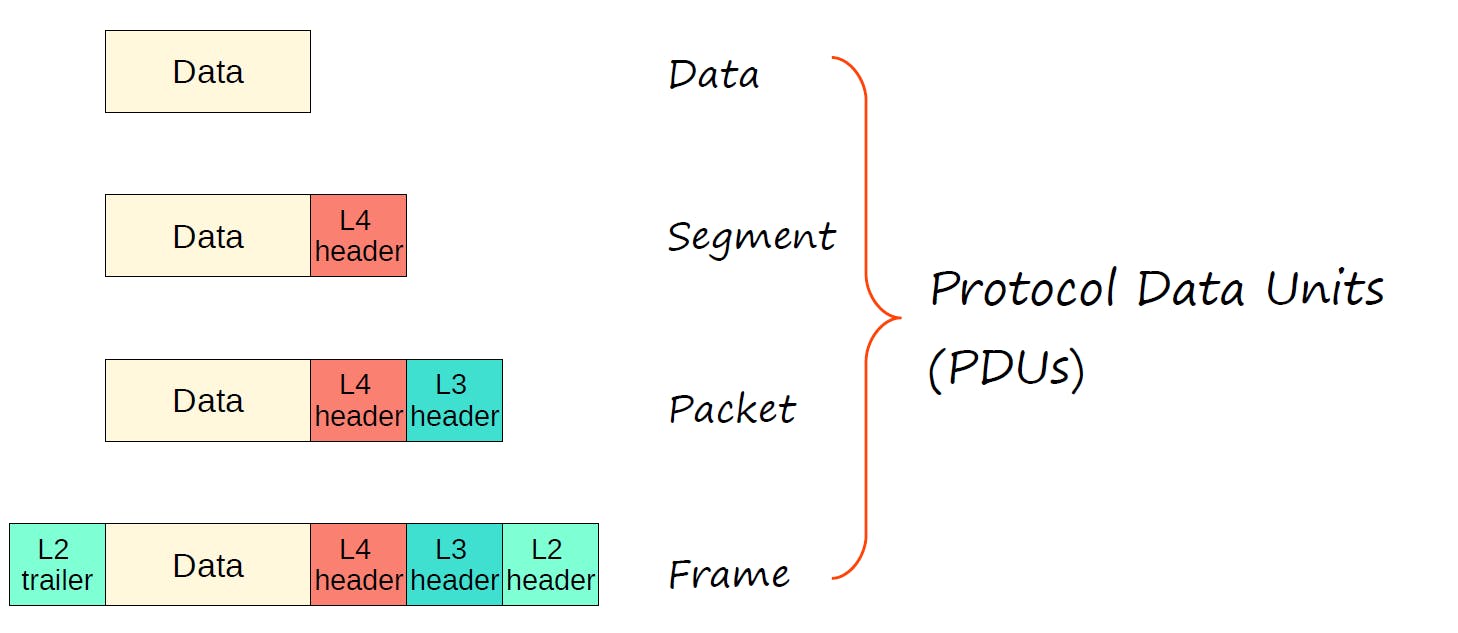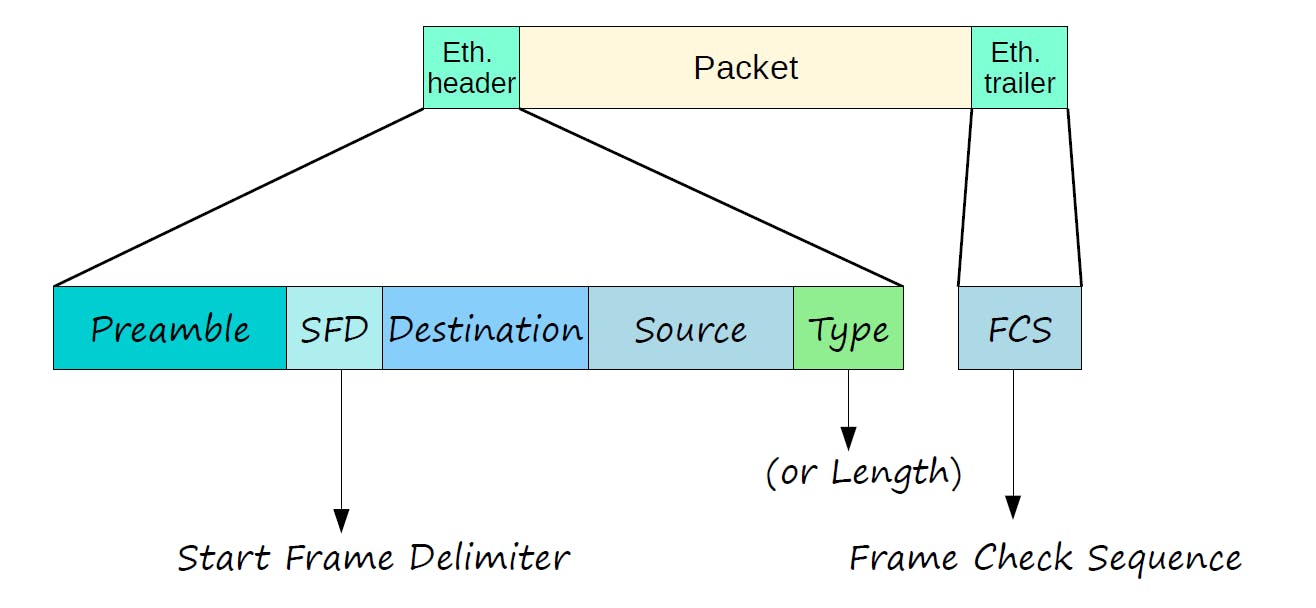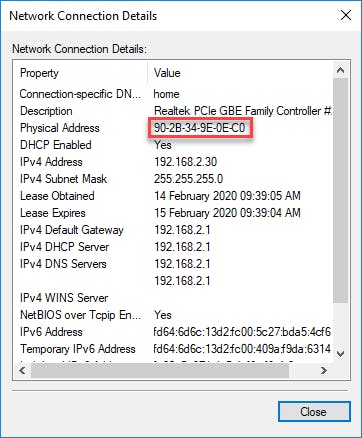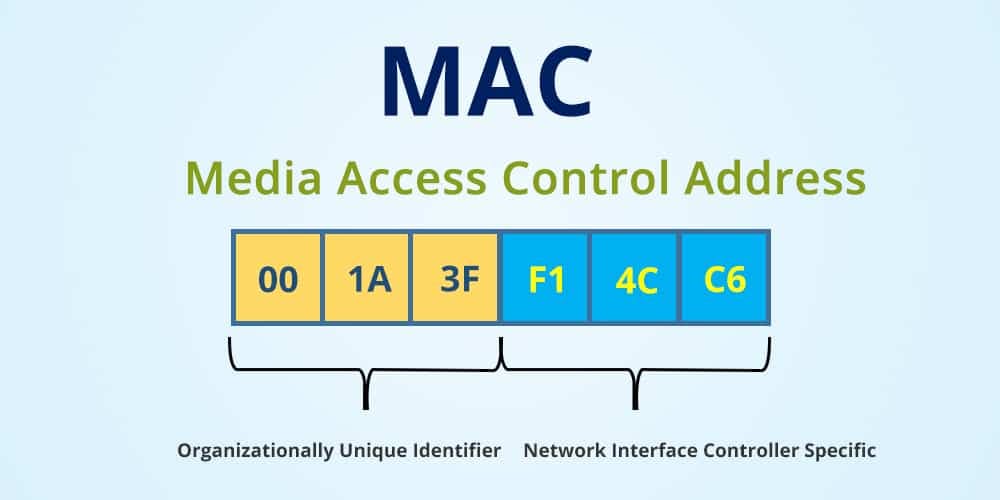Packet Data Units encapsulated from all 7 layers in OSI

The encapsulated packet from the OSI layer is seen as below in Ethernet Frame

1. Preamble
- Length: 7 bytes 9 ( 56 bits ).
- It's a series of alternating 1's and 0's = 1010101.
- synchronizes the receiver block to make them ready to receive data
2. SFD
- SFD - Start Frame Delimiter.
- Length: 1 byte ( 8 bits ).
- Binary form = 10101011.
- Separates preamble with the rest of the frame.
3. Destination and Source
- Consist of the destination and source ‘MAC address.
- MAC = Media Access Control.
- = 6 bytes (48-bit) address of the physical device
4. Type / Length
- 2 byte (16-bit) field
- A value of 1500 or less in this field indicates the LENGTH of the encapsulated packet (in bytes).
- A value of 1536 or greater in this field indicates the TYPE of the encapsulated packet usually IPv4 or IPv6, and the length is determined via other methods.
5. CRC
- A cyclic redundancy check (CRC) is an error-detecting code commonly used in digital networks and storage devices to detect accidental changes to raw data.
- Happens at the Data link layer.
- AKA FCS ( Frame Check Sequence ).
- 4 bytes ( 32 bits ) in length.
6. MAC Address

- A 6-byte (48-bit) physical address is assigned to the device when it is made.
- A.K.A. ‘Burned-In Address’ (BIA).
- Is globally unique
- The first 3 bytes are the OUI (Organizationally Unique Identifier), which is assigned to the company making the device
- The last 3 bytes are unique to the device itself

